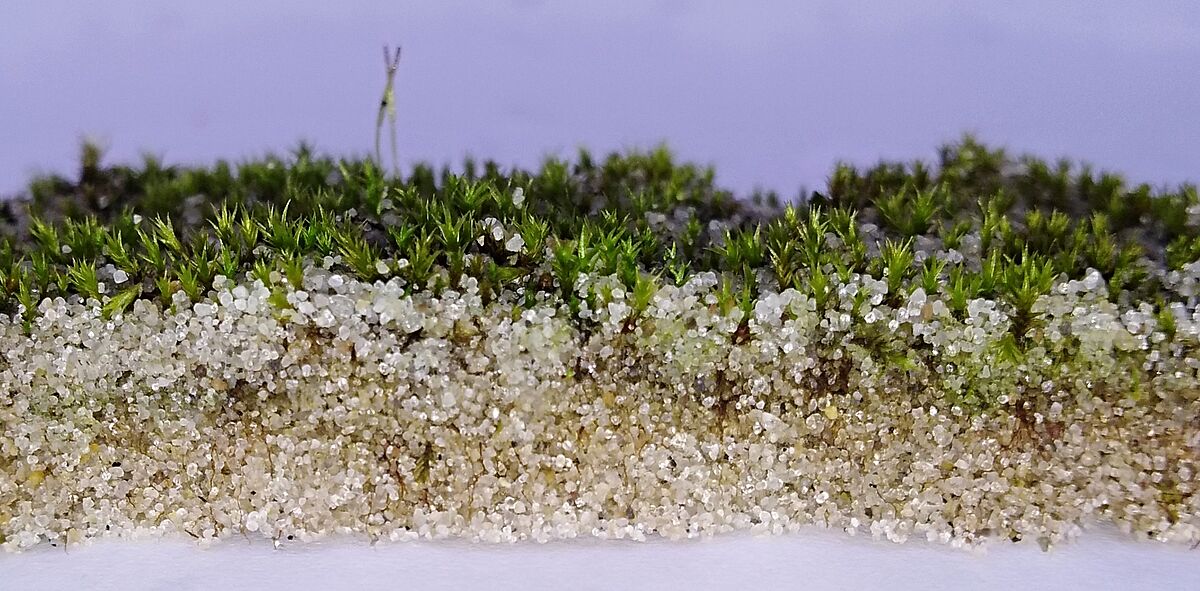Soil Crusts: Gene expression in biogeochemical cycling of phosphorus in biological soil crusts of sand dunes of the Baltic Sea
The sand dunes of the Baltic Sea are a dynamic and ecologically challenging location and offer a unique habitat for the settlement of biological soil crusts. These are communities of bacteria, cyanobacteria, green algae, lichens and fungi. Because of their impact on primary production, the enrichment of the dunes with organic compounds, their role in the nutrient and water cycle and the stabilization of the top soil layer, biocrusts are known as so-called “ecosystem engineers”. However, the growth-limiting element phosphorus and in particular the molecular biological processes within the phosphorus cycle in biocrusts have hardly been investigated.
In this project, the community structures of different successional stages of bio-crusts are investigated along a terrestrial-marine gradient. A comprehensive soil analysis is intended to describe how the phosphorus content in the soil changes with increasing dune age and under the influence of biocrusts. For this purpose, additional soil properties and the biomass are recorded.
Moreover, important soil bacteria from these communities and their contribution to the P-cycle are studied. In addition to the classic ecological work in the field, state-of-science molecular biological methods are used. These allow to identify genes that code for the proteins relevant in the P-cycle, to quantify their replicates in the genome and to assign them to possible functional gene groups (P deficiency and uptake or P degradation).
Responsible persons
M.Sc. Sandra Kammann (Applied Ecology and Phycology, University of Rostock)
Prof. Dr. Ulf Karsten (Applied Ecology and Phycology, University of Rostock)
Prof. Dr. Matthias Labrenz (Environmental Microbiology, Institut für Ostseewissenschaften Warnemünde)
Applicants
Prof. Dr. Ulf Karsten, Prof. Dr. Matthias Labrenz
Funding
In the framework of the ScienceCampus Phosphorforschung Rostock
Funded by the Leibniz Society
Funding number
W19/2018
Funding Period
2019 – 2022
Cooperation partners
Prof. Peter Leinweber, PD Dr. Christel Baum (Bodenkunde, Universität Rostock), Prof. Martin Hagemann (Pflanzenphysiologie, Universität Rostock), Dr. Dirk Michalik (LIKAT)
Official project website
https://wissenschaftscampus-rostock.de/aktivitaeten/nachwuchsfoerderung/graduiertenschule-phosphorforschung.html

